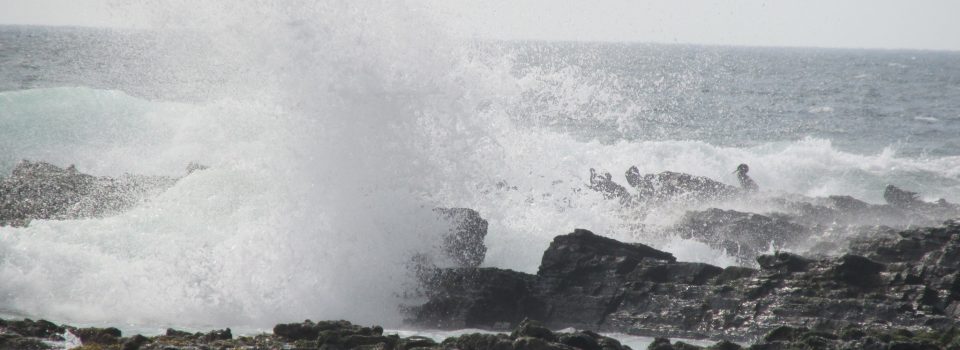El niño and weather variability (ENVAC) work group met at IFOP to analyze the evolution of this phenomenon
May 6th, 2016On April 4, 2016, at IFOP premises, El Niño and Weather Variability (ENVAC) work group of National Oceanographic Committee met to analyze the evolution of El Niño during 2015/16 and methodological development of the whole “Monitoring bio-oceanographic between Regions XV and II” which is held annually under the agreement with the Permanent Commission of the South Pacific (CPPS).
Dr. Jaime Letelier Pino, Head of the Department of Oceanography and Environment of IFOP explained that ” El Niño and Weather Variability (ENVAC) work group was created on November 21, 1994, in order to coordinate and organize the efforts of the different national institutions that conduct research on this phenomenon, either meteorological, oceanographic, biological and / or fishing aspects, as well as socio-economic aspects.
The main objective of the Working Group (WG) is to be the coordinating body among national programs, regional and international ones related to El Niño and its effects on fisheries, agriculture and weather of the countries concerned. Therefore, in 2008, “Regional Study of El Niño Phenomenon”, was established as a focal point of the international program led by the Permanent Commission of the South Pacific, formed by the countries of the Southeast Pacific, Colombia, Ecuador, Peru and Chile.”
The professional pointed out that “the GT has a permanent coordination among the main institutions it is conformed by: Instituto de Fomento Pesquero, Universidad of Concepcion, Universidad de Valparaiso, Universidad Católica de Valparaíso, Universidad de Chile, Universidad Catolica del Norte, Meteorological Service of Chilean Navy, Hydrographic and Oceanographic Service of Chilean Navy, Dirección Meteorológica de Chile, Dirección General del Territorio Marítimo y de Marina Mercante, Instituto de Investigación Pesquera del Norte, Subsecretaría de Pesca, Cía Internacional de Pesca y Derivados, S.A., Instituto de Investigaciones Agropecuarias, and Ministerio de Salud has been lately incorporated.
Among its main activities, the permanent monitoring by the pertinent institutions, of oceanographic and atmospheric indicators and also fishery biological indicators.
Monthly monitored data is sent to Permanent Commission of South Pacific for or the preparation of Climate Alert Bulletin (BAC) which can be downloaded from the website of the CPPS (http://cpps-int.org).
Another effort is the Bio-Oceanographic of Northern Chile Bulletin, which is constantly carried out by IFOP (http://www.ifop.cl) and the Oceanographic Bulletin carried out by the Department of Geophysics of the Universidad de Concepción (UDEC), jointly with the Instituto Milenio de Oceanografía (IMO) (http://www.dgeo.udec.cl)”.
“The workshop findings confirm the recession of El Niño to the coast of Chile, moving toward a normal year during the winter, and as suggested by forecasts of NOAA, with 50% of chance of passing to La Niña phase during spring time” Dr. Letelier concluded.
